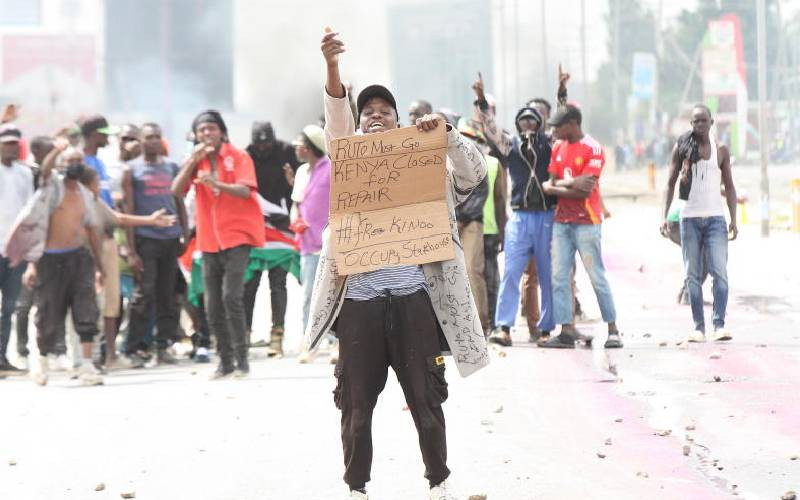Days ago, a tribunal in Bangladesh indicted former Prime Minister (PM) Sheikh Hasina in absentia for crimes against humanity, following a leaked audio of the PM ordering for the shooting of protestors. Hasina fled the country for India in August 2024 after student protests overthrew her government and installed a transitional one. These protests began in 2022 when the youths demanded for reforms in the allocation of government jobs to younger people. But instead of addressing these concerns, Hasina used violence to quash the protests, which resulted in the deaths of hundreds of youths. The parallels between Kenya and Bangladesh up to this point are shocking.
Part of the evidence that bolstered Hasina’s indictment was a report by the UN Human Rights Office (OHCHR) that found her personally culpable for the violence. Kenya, too, has received a message from the OHCHR, even though an investigation is yet to commence. Rather than await international action, however, the Judiciary of Bangladesh took matters into its own hands, choosing to indict the former PM. Clearly, according to Bangladeshi rule of law, ordering the shooting of protestors is so egregious as to constitute a crime against humanity.
In the same week Hasina was indicted, in Kenya, President William Ruto had had enough of the Gen Z protests and asked police to shoot protestors in the leg. This pronouncement was uttered from a more benevolent stance, as the Interior Cabinet Secretary (CS) had enforced a shoot-to-kill order for protestors exercising their constitutional right. No investigative action has been taken against these orders or the countless deaths at the hands of the police already witnessed.
Is Bangladesh in the wrong and Kenya in the right? The Rome Statute of the International Criminal Court provides examples of what would constitute a crime against humanity. Of import is that, first, the crime must be an act “committed as part of a widespread or systematic attack against any civilian population, with knowledge of the attack”. One of the examples provided is any “inhumane act…intentionally causing great suffering, or serious injury to body or to mental or physical health”.
Before we assess whether the “shoot-to-kill” and “shoot-to-maim” orders would qualify for the Bangladesh-like treatment or are justifiable, it is also worth noting that another crime against humanity recognised by the Rome Statute is the enforced disappearance of persons, defined as “the arrest, detention or abduction of persons by, or with the authorisation, support or acquiescence of a State…followed by refusal to acknowledge that deprivation of freedom or to give information on the fate or whereabouts of those persons, with the intention of removing them from the protection of the law for a prolonged period of time”. Even this continues to be witnessed in Kenya.
So often, African countries rely on the assistance of the West to resolve situations within their own borders. This is understandable as it can feel as though systems are so broken as to be irreparable. Of course, we cannot ignore that inferiority complex that exists locally, which keeps us holding on to the belief that the West is watching while we undergo hardship, and will hopefully swoop in soon to make things right. But this is hardly ever the case, as cases such as Rwanda and Kenya following the post-election violence of 2007-8 show.
What cannot be denied is that universal definitions of what is right and what is wrong under the law exist. What remains is the legal will-power to act upon grave injustices. Chief Justice (CJ) Martha Koome, while speaking about the protests last week, urged both the police and the protestors to exercise caution. This fence-sitting does nothing for truth and justice, as it does not call out the injustice between the person holding the gun and the one standing in front of it. It would perhaps restore hope in the people to see the CJ or the Law Society call out the crimes we witness for what they are, and to have those speaking from lower rungs indicted for their orders, if we are to believe that the Judiciary is independent. The reality, however, is that Bangladesh itself had to wait for the ouster of the offending government to seek justice, and this might have to be the case too for Kenya.
Ms Gitahi is an international lawyer
By Njahira Gitahi


